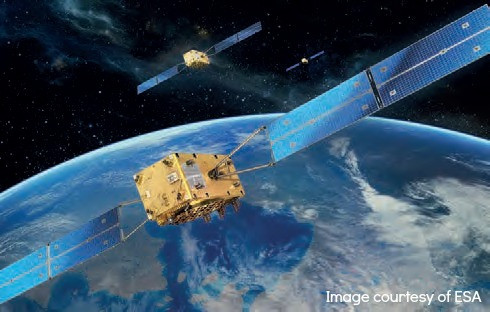
The European GNSS Evolution Programme (EGEP) is a program of the European Space Agency (ESA) for undertaking technology research, development and verification related to Galileo and EGNOS. One of the main objectives of this program up to 2015 is preparation of the future Galileo generation (Galileo Second Generation, G2G), to be phased in during the early 2020s, by which time the first Galileo satellites already launched will have come to the end of their operational lifetime.
G2G activities include studies of the benefits, feasibility and impacts of the various concepts analyzed at system level, in the ground segment and satellite payload, etc. One of its primary targets is to compile all these studies to define a potential system baseline for the Second Galileo Generation, naturally incorporating the lessons learnt from the first generation.
On the strength of GMV’s Galileo experience and knowledge, the European Space Agency (ESA) has awarded it several contracts to define various G2G aspects. In particular we are involved in evaluation of requirements in mission analysis, system operation, system performance and RAMS analysis.
Under these contracts GMV’s suite of GNSS products comes into its own for assessment of future system performance. These products can accurately predict the likely performance when studying alternative constellations; particularly important here is the use of IGSO satellites to enhance Galileo services. GMV tools will be used also for evaluating innovative technologies not yet present in today’s missions, such as inter-satellite links, which will allow satellites to obtain information from the rest of the constellation satellites.
GMV’s RAMS expertise has also been very positively valued by the Agency. GMV has thoroughly demonstrated its skills in this area, not only in GNSS, Galileo and EGNOS but also in other critical ESA space systems like the space launcher VEGA or the EDM Mars Explorer. For the G2G, GMV will be in charge of the creation and maintenance of the RAMS model for the whole system, including reliability and maintainability (predictive and corrective) analysis, FMEA/FMECA production, fault-tree analysis, event-tree analysis and safety assessment.




